Task force on Outer Banks housing issues holds first meeting
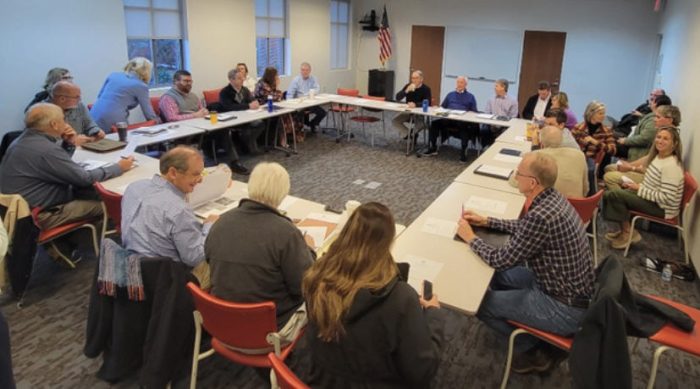
From SamWalkerOBXNews.com
At the opening meeting of a newly-formed task force created to address the continuing lack of housing held on Thursday, a significant shift in messaging was agreed on by the panel of roughly 20 representatives from local government agencies and various sectors of the Outer Banks business community.
The inaugural gathering at the Dare County Government Complex was more of a skull session than about policy making, as each member shared their thoughts, concerns and ideas about what has been a decades-long issue in Dare County.
The group designed to form an “atmosphere of collaboration” gave affirmation to no longer making references to “affordable”, “essential” or “workforce” going forward, because that terminology itself has been divisive at times.
“It’s a housing problem…we are not going to add any qualifiers,” said County Manager Bobby Outten. “Hopefully that’s how we can shift the dialogue.”
Presided over by Dare County Board of Commissioners Chairman Bob Woodard, the panel ranges from at least two officials from each of the six municipalities, along with representatives from the Visitor’s Bureau, Homebuilders Association, Association of Realtors, Restaurant Association, Hotel/Motel Association, the Chamber of Commerce, and local residents that have been actively involved in the housing issue.
Woodard said that he did not have to “twist any arms to serve on the task force”, and that “it shows a commitment to everyone’s constituents and interested parties to solving the problem.”
Nearly all task force members were in attendance at Thursday’s meeting, with a Hatteras Island representative and others having previous conflicts that could not be avoided.
Woodard reviewed the most recent situation, where a $35 million appropriation in the state budget for housing in Dare County carries caveats that would overrule municipalities from being able to enforce their own zoning regulations on any proposals made in their towns.
County commissioners passed a resolution earlier this month promising not to use the money with the stipulations laid out in HB 259, and also created the task force to foster a better relationship.
Outten give a historical review of efforts to tackle the problem. He said that one of the keys for success is to come to a consensus on what to do and how to do it.
He noted multiple studies, with each of those reviews coming to the same conclusion that housing is the area’s primary problem that has to be addressed.
Outten said roughly 3,000 housing units are needed, but the county doesn’t see that many coming online in the immediate future due to a variety of factors.
Multiple efforts have been attempted recently, with none able to put a dent in that number.
“And the problem has steadily gotten worse,” Outten said.
Woodard then asked each member to either agree or disagree that there is a housing problem and that they are willing to find a solution and support it.
All members agreed on both points.
He then had each member state their thoughts on the housing issue from each of the groups they represent, and how they feel the task force can address them.
Each detailed the conversations that are being had in their towns or organizations about housing, and also some of the solutions they’ve attempted or reviewed.
Comments from the group include whether to focus on the overall housing, or target specific needs of business and/or public service agencies to start.
Others said coming up with “out-of-the-box solutions” as referenced by OBAR’s government affairs representative Donna Creef, along with having an open mind and selling the community on the definition of what the task force is trying to do, are also key to success.
Anecdotes about the impact of a lack of housing has had on the restaurant industry were shared by Caroline Basnight of Lone Cedar Cafe and Bob Peele, Vice Chair of Government Affairs for the Outer Banks Chamber of Commerce and director of the N.C. Marine Industrial Park Authority in Wanchese, including reduced hours and days of operation by restaurants.
They noted that some were closed two days a week in high season, losing a combined month of business, and there were 300+ restaurants competing for the same small pool of workers.
Another comment shared was that it was key to address the misconception that this is not about low-income/Section 8 housing image that dates back to initiatives from the 1960s and 70s has to continue, but its about homes for teachers, fire and EMS, police, visitor service industry employees, and other middle-income residents was another comment shared.
Homeownership should be a goal, not just rental housing, was a point made by Malcolm Fearing, who has been advocating to address the Outer Banks housing issue for years.
“We’re not talking about warehousing people, we’re talking about building communities,” Fearing said.
Communication is key, as was shown in the cluster housing controversy in Wanchese, according to village resident and task force member Mitchell Bateman.
He also noted that finding the solutions to the needs for year-long residents and seasonal workers has to be done.
Duck Town Manager Drew Havens notes his town has police officers living in Camden and Columbia because they can’t find housing closer.
“We want housing that’s good for people…livable, while affordable,” said new Manteo Mayor Sherry Buckman Wickstrom. “I think this is absolutely doable, but we each have to acknowledge we have different needs.”
Outten talked about the establishment of a housing authority, and noted a host of legal and other complications to do so at the county level in North Carolina.
“There is going to have to be private sector participation…along with help from the state level,” Outten said.
Nags Head Town Manager Andy Garman says a housing authority has come up multiple times in conversations about the housing issue, and notes the challenges the towns would face.
Kill Devil Hills’ new Mayor John Windley asks if there has been any contact with neighboring counties about addressing the housing issues.
Woodard said yes, but did not share specifics about the response from places like Currituck County.
Discussion briefly went to the previously agreed contract between the county and Coastal Affordable Housing LLC that has not moved forward.
Kitty Hawk Mayor Craig Garris specifically addressed HB 259.
“That was dirty, backdoor politics at its best,” Garris said. “Perception is that the county was involved…but I know they were not…they have the towns’ back.”
He noted that there is a parcel in Kitty Hawk that is the target of the funds from HB 259, and that is concerning for his town.
And there is still suspicions in the towns about where the budget provision came from.
Garris said that the source of HB 259 needs to continue to be cleared up, and both the commissioners’ resolution and the creation of the task force is just one example of how the county is on board with not forcing the towns to do something they don’t want to do.
With regards to the $35 million, Outten said that there were nothing in the state budget that said to “give it back” if the county doesn’t use it, but added that state lawmakers could very well rescind the appropriation in the future.
Finding a way to incentivize getting long-term rentals back in the market, especially in the Kill Devil Hills westside, was shared by the town’s Senior Planner Cameron Ray.
Manteo Town Manager Melissa Dickerson noted they have a pair of HUD affordable housing developments, and they have few, if any complaints about them.
She also wants some additional clarity about what the towns and the county can do from a statutory level.
Outten shared a recent conversation he had with a colleague from Chapel Hill who said they were “spinning their wheels” on the housing issue, then made an aggressive move that got the ball rolling and the perceptions of ‘Not In My Backyard’ opponents turned out to be unfounded.
He also brought up Dare County’s own experience with starting beach nourishment when Nags Head completed their first project in 2011 just ahead of Hurricane Irene, and the other towns jumped on board a few days later after seeing it worked to protect oceanfront properties.
Earlier in the meeting, Woodard related that coming up with the public-private partnership to build the Miss Katie dredge shows that solving this issue in Dare County can be done.
He also said the task force needs to find ways to tackle the push back on density, and address other negatives that come from opponents.
Following the task force members comments, Outten laid out a list of what the task force will need to address in the immediate future.
That includes a mission statement, what specific housing needs they want to target, dealing with the legal restrictions they face, and outreach to get buy-in from individual communities.
The next meeting of the task force will be held on Tuesday, February 20 at 9 a.m., and continue meeting on the third Tuesday of each month.




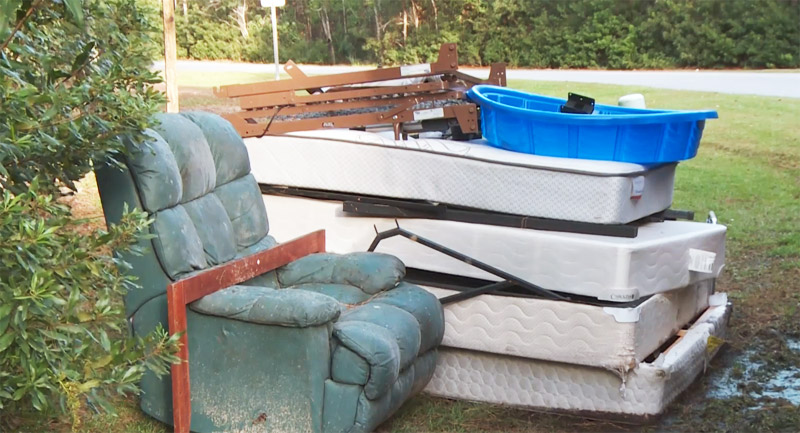
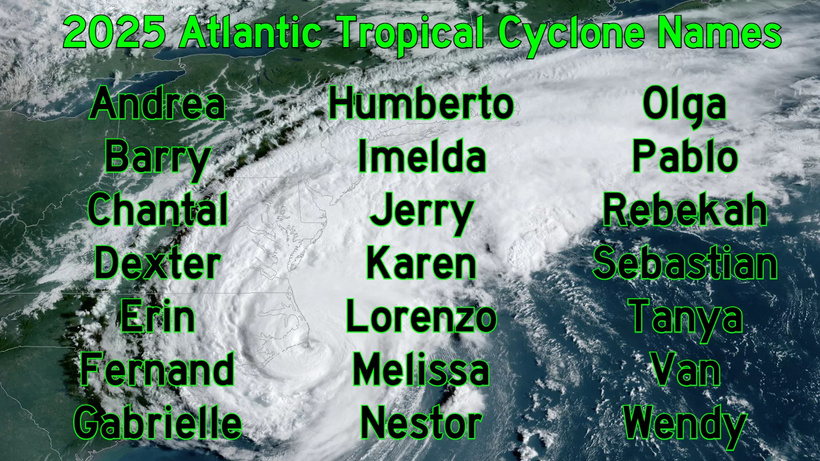
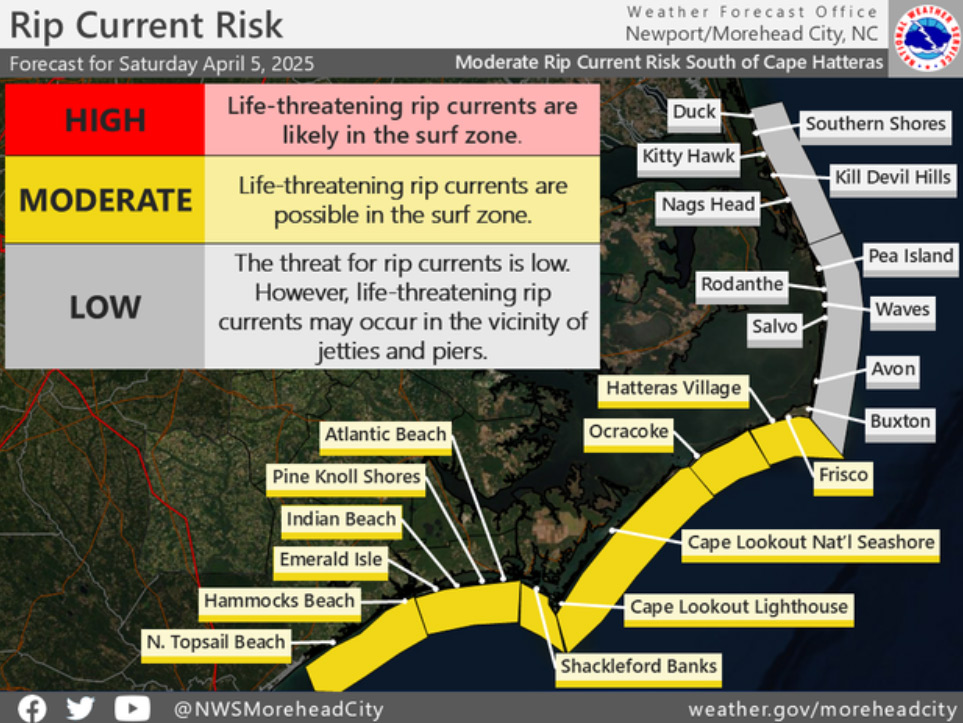


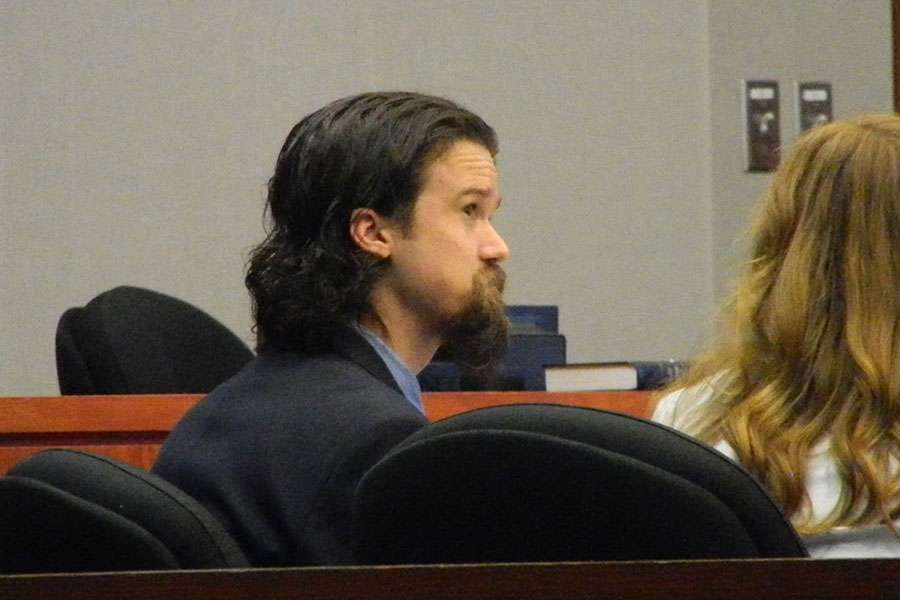
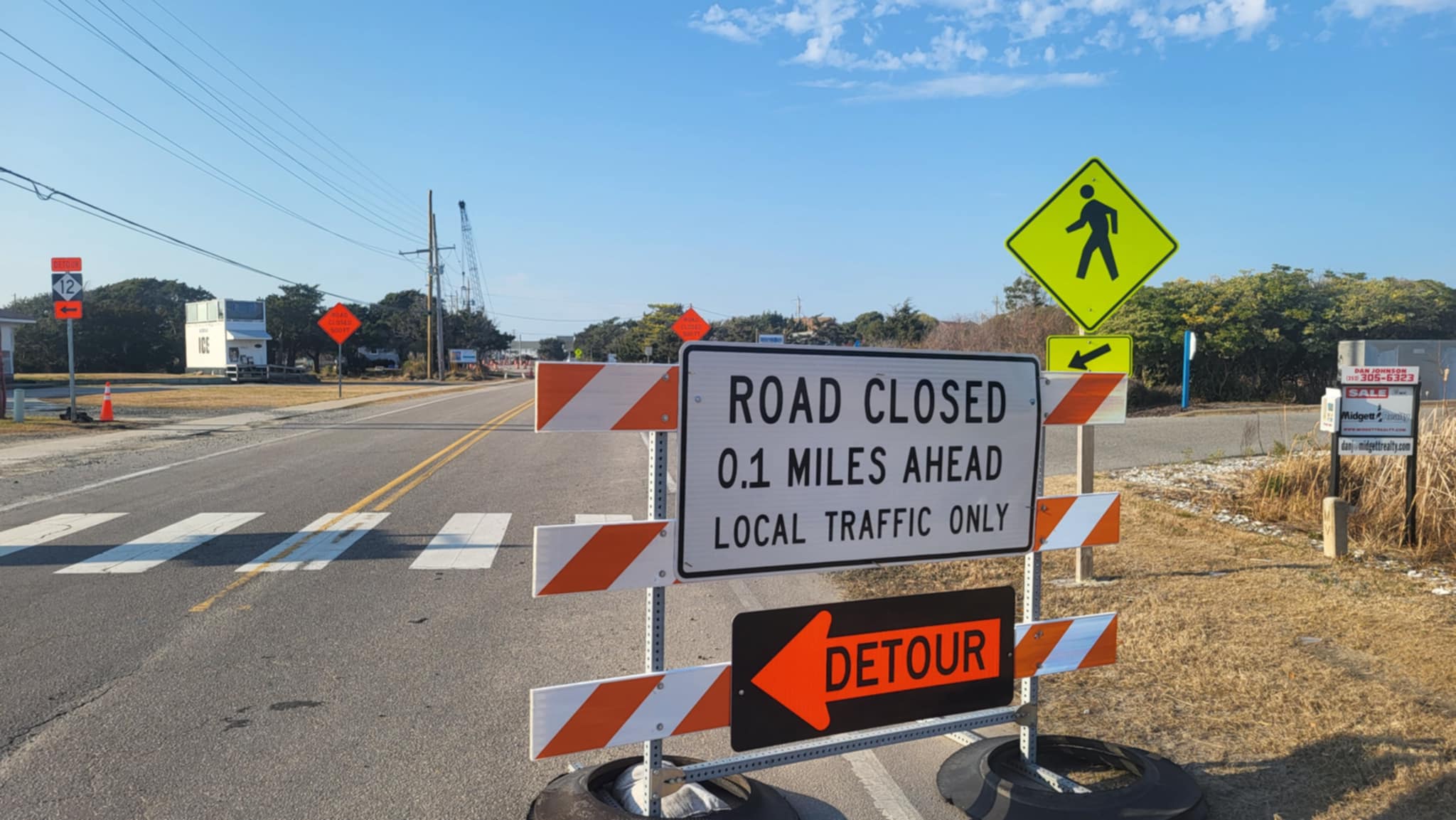
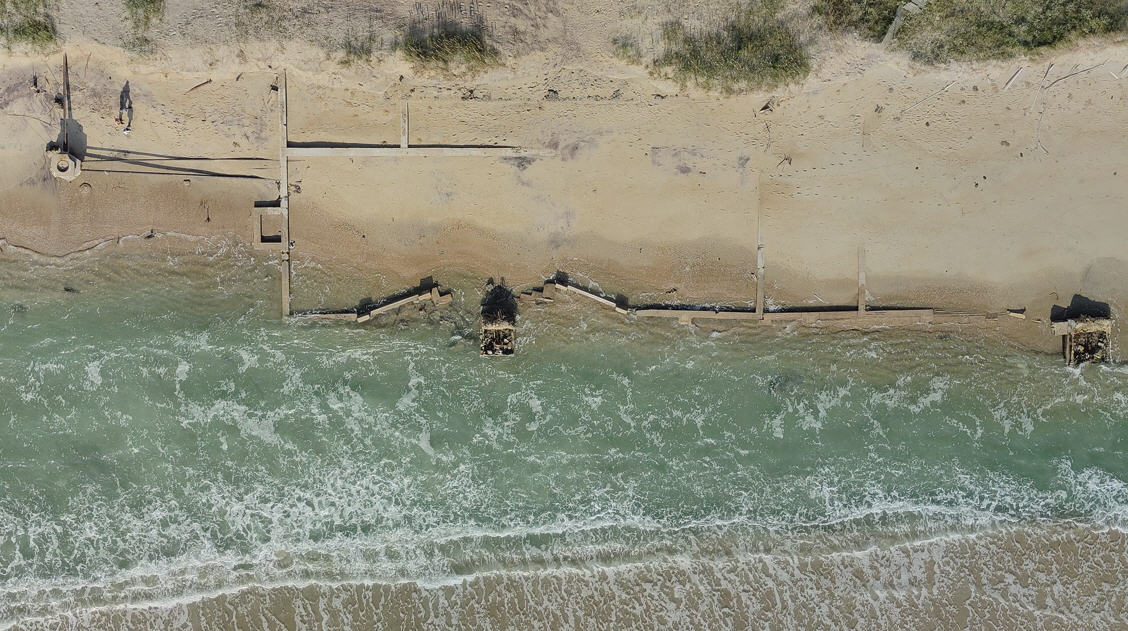


Massive waste of time. Same government grifters in different roles. I can only hope no one is paid until the results are shown. The reality is no community wants low income housing or multi-family housing. Developers have a keen interest in getting on this gravy train though. As for long term rentals…no one in the right financial mind would have a long-term rental. You can make more in three months than an entire year and have no worries of the renter not paying and having to evict them. A neighbor of mine with a tiny home (1 bed and 1 bath) rolls in a minimum of $200/night from April through mid-October. That is well over $35K per year and no sign of demand letting up. It is time to get real and accept the fact it will never be on HI or the northern beaches. The mainland is the only opportunity and the land in Currituck is not getting cheaper as the RT 158 corridor is rapidly filling up.
100% correct!
Amen, someone else gets it, besides me!
Dave in Avon